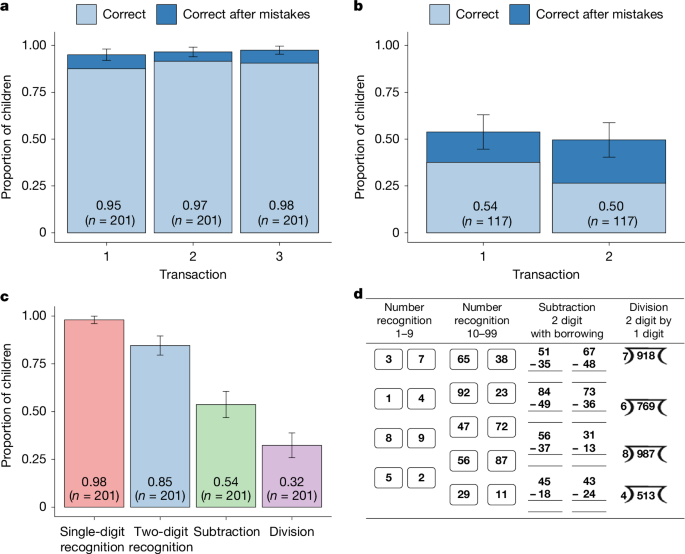I left my job in corporate law to start a 7-figure matcha business with my wife. Working together has strengthened our relationship.
www.businessinsider.com
Elias Tiong and his wife, Hailee Chong, started a bottled tea drink business after a trip to Japan in 2018.As risk-averse full-time lawyers with no business experience, they started the business on the side.They've since left their jobs to focus on building their brand, Crafti, full-time.This as-told-to essay is based on a conversation with Elias Tiong, 31, the founder of Crafti, a matcha business in Singapore. The following has been edited for length and clarity. Business Insider has verified their business earnings.After a year in corporate law, I realized it might not be my cup of tea.The law firm I was working at had offered newly qualified lawyers a monthlong break after a year of training. The break was timely. I had lost weight not in a good way and my acne had gotten worse. I began to reflect on whether being a lawyer was the right career choice.I decided to take a trip to Japan with my then-fiance, Hailee. On that trip, I discovered how dependent I had become on coffee. Since joining the firm, I started drinking two to four cups a day. While traveling through remote areas, I couldn't get coffee and struggled with severe migraines. I saw this as a wake-up call that I needed to live healthier and reduce my caffeine dependence.As it happened, we came across many bottled tea drinks at convenience stores in Japan. Unlike coffee, which I found had less variety outside the specialty coffee scene, there were so many different types of tea from hojicha and matcha to genmaicha.They turned out to be suitable alternatives to coffee. While teas like matcha contain caffeine, I found that they didn't cause jitters, in the way that coffee had.So Hailee and I thought: Why don't we try to create something similar back home in Singapore? Tiong conducted research and development to produce their bottled tea lattes. Elias Tiong In 2019, we started a side business selling bottled matcha. We used premium ingredients like ceremonial-grade matcha and fresh milk, so the drinks tasted more like caf-made drinks and less like what you'd typically find in a convenience store.As lawyers with no business experience, we were risk-averse. We invested a small amount upfront about $1,500 just to conduct research and development and come up with the first batch of inventory.We got questioned about the career changeAt first, some people asked, "Why would you be a lawyer and sell tea?"My parents also questioned me about the opportunity cost of starting a business. But I wasn't as worried about how much money I made. I was passionate about something, I believed that with that, I would be able to flourish.The business started off strong. The pandemic led to a surge in demand for e-commerce and our bottled drinks sold well. That was when I decided we were doing well enough for me to quit and focus on the tea business full-time.But when pandemic restrictions were lifted, demand fell, and we saw business tumble. It was scary. It was our first experience with volatility something we've since learned to live with.We decided to pivot from selling bottled tea lattes to selling matcha powder for consumers to make healthy tea lattes at home. Now called Crafti, our business grew 50% to 80% in revenue annually. At the end of 2024, we reached a low seven-figure revenue.Mixing business and marriageWhen we started, we decided to run the business on the side because we didn't want to take too much risk. We had a mortgage to pay and other expenses to consider. So, even when I left my job to do this full-time, my wife continued to work in law and helped run the business on the side.But in 2024, she left her job to work at Crafti full-time. And I'm happy that we're managing to make it work.We complement each other well. I take on a more managerial role and work on longer-term business strategy while she takes on a more creative role.I've seen many examples of successful businesses run by couples. The pros are that couples often have a shared vision, and that is so important when running a business.The bad thing is, of course, there are disagreements at times.Learning to manage disagreements has strengthened our relationship. We're not parents yet, but I believe there are certain similarities with parenthood in that it's a shared project between us. Many couples have told me that parenthood made them closer, and I view our business in the same way. To promote their matcha line-up, Tiong previously conducted matcha workshops for their customers. Elias Tiong Matcha as a long-term planWe are happy with our business and have no plans to return to law.The thing about running a business is that you can have profit on paper, but you may not have cash in the bank, because you need to invest back into your business. After five years, we now pay ourselves about the same as we got in our previous jobs.The biggest change is that I had someone to push me along at the law firm. But now, my wife and I are responsible for making sure things get done. Over the years, we've grown to a team of 10 and work out of a coworking space.Still, I feel a greater sense of fulfillment. I didn't used to look forward to work. But now, whenever my wife and I go on vacation, we can't wait to return and get work done.
0 Commentarios
·0 Acciones
·55 Views











